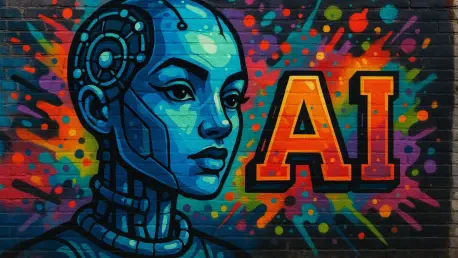In a rapidly evolving tech landscape, companies face a critical question: Is artificial intelligence bolstering workforce efficiency or rendering human contributions obsolete? Recent studies, including one by PricewaterhouseCoopers (PwC), suggest that generative AI advancements are revolutionizing job roles and productivity, with tangible effects on wages and industry dynamics. Far from eliminating positions, AI is redefining them, offering a significant premium on wage rates for roles requiring specific AI skills. This transformation is seen across sectors vulnerable to automation, with notable financial benefits and technological integration driving the reformation of traditional job structures.
The Role of AI in the Workforce
The AI industry has become a pivotal force within the workforce, playing a transformative role in various domains. Characterized by rapid innovation and adoption, AI’s presence spans sectors such as software development, finance, healthcare, and manufacturing. With key market players investing substantially in AI-driven technologies, firms are witnessing increased efficiencies and augmented productivity levels. Technological influences are reshaping business processes, while regulations continue to govern AI implementations to ensure ethical standards and data security. As AI permeates diverse segments, this technology’s significance grows, reshaping employment landscapes and fostering a robust economy.
Trends and Transformations in the AI Landscape
Influential Trends Shaping the Industry
Emerging technologies like machine learning and natural language processing are at the forefront of AI’s evolutionary journey. This trajectory is driven by several factors, including changes in consumer behaviors and an expanding need for digital solutions. Companies are capitalizing on these trends, unveiling new opportunities in AI software and tool development that revolutionize workplaces. Strategic advancements enable organizations to adapt to shifting demands, employing AI to deliver sophisticated solutions that enhance user experiences and operational processes.
Market Projections and Economic Influence
The AI sector’s economic impact is magnified through promising growth projections and key performance indicators. Market forecasts reveal an upward trend, with AI technologies contributing exponentially to revenue increases in AI-exposed sectors. As businesses leverage AI’s capabilities, analysts predict robust economic performance, underscoring AI’s vital role in global markets. This economic influence invites strategic investments, urging companies to explore AI as a gateway to future growth and industry dominance.
Challenges and Complexities Facing AI Integration
Despite its transformative potential, AI integration presents various challenges that industries navigate to optimize its benefits. Technological hurdles include the need for advanced infrastructure and expertise to implement AI systems effectively. Regulatory woes continue as policymakers strive to create frameworks that align with rapid technological changes. Market-driven complexities, such as public perception and job displacement fears, complicate AI adoption. Industries must formulate robust strategies, focusing on education and innovation to mitigate integration risks and harness AI’s full potential.
Regulatory Landscape and Compliance in AI
AI’s evolution demands a thorough examination of regulatory frameworks associated with its adoption. Significant laws, standards, and policies shape industry practices, offering guidelines for ethical AI usage and securing data integrity. Compliance becomes pivotal, with companies navigating stringent requirements to ensure their AI solutions adhere to established legal norms. As regulations evolve, AI stakeholders are urged to monitor shifts closely, adapting business methodologies to sustain competitive positions while conforming to global standards.
The Future of AI in the Labor Market
AI’s role in transforming the labor market is underscored by ongoing advancements and expansion into untapped growth areas. Emerging technologies continue to redefine traditional job roles, creating desired skill sets that cater to an AI-driven future. Market disruptors bring forth innovative solutions, challenging existing paradigms and inviting strategic adaptations. These changes invite consideration of factors such as innovation culture, regulatory shifts, and global economic climates to dictate AI’s future trajectory in shaping work environments.
Conclusion and Recommendations
Findings reveal that AI acts as a transformative agent within the labor market, redirecting roles toward efficiency and value enhancement. Emerging technologies prompt shifts in skill requirements, while wage premiums in AI-focused positions offer lucrative incentives for job seekers. As companies navigate the complexities of integration, strategic partnerships and investments in AI infrastructures emerge as vital considerations for future growth. Recommendations advocate prioritizing innovation, skill development, and regulatory compliance as pathways to leveraging AI’s full potential, fostering industries that thrive amidst dynamic technological landscapes.









